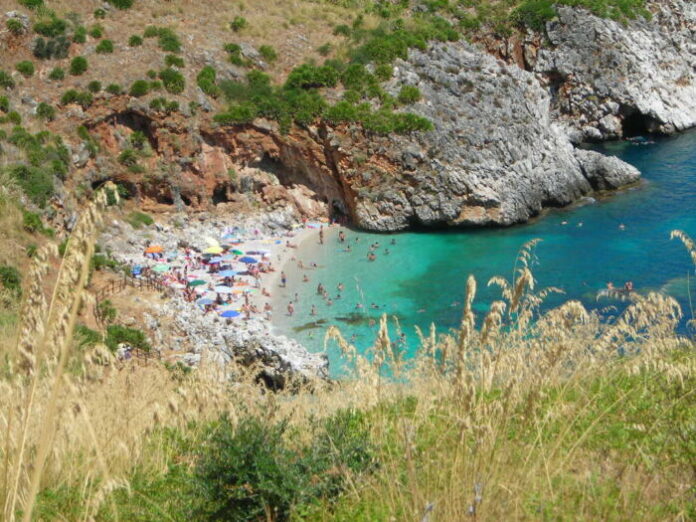
Anger and pain. This is what one feels when looking at the images of the Riserva dello Zingaro destroyed by a vast fire that hit one of the most beautiful and visited protected areas in Sicily. This is a real environmental disaster, after the reserve was saved from another fire that broke out in 2012.
For the mayor of San Vito Lo Capo, Giuseppe Peraino, it is an arson attack: “The criminal hand acted once again on our territory which was literally besieged by fire”, commented the mayor.
Not only the Riserva dello Zingaro, yesterday also an important stretch of the Path of the Gods in Campania went up in flames. The beautiful trekking route between the mountains and the sea has been closed until a later date due to fires that have affected the upper part of Positano and Praiano.
“Criminal hands, which as such should be identified and prosecuted, have scarred the Path of the Gods” commented the mayor of Agerola, Luca Mascolo, who had to take the painful decision to close the nature trail.
That of summer fires is a plague that afflicts ever larger areas of Italy. In fact, in recent years the phenomenon of fires in the Mediterranean basin has intensified, with increasingly severe fires. What are the main causes of these fires? Is there a link between this phenomenon and that of climate change?
Greenpeace tried to answer these questions with the report “A country that burns. Climate change and forest fires in Italy ”created in collaboration with the Italian Society of Silviculture and Forest Ecology (SISEF).
The phenomenon of fires in Italy
The forestry heritage of our country, although growing in terms of total area (especially due to the progressive abandonment of the countryside), is threatened by increasingly frequent and severe fires which in recent years have seen large areas covered by fire and loss of human life. In the last forty years, forest fires have affected an average of 107,000 hectares per year and, between 2000 and 2017 alone, the areas affected by fires were 8.5 million hectares in the Mediterranean basin, an area equivalent to approximately three and a half times Sardinia.
In general, the main causes are:
- the progressive abandonment of agricultural and pasture areas;
- the lack of land management;
- an emergency approach, which focuses mainly on fighting active fires rather than their prevention;
- climate change, increasingly impacting.
Climate change and forests are closely linked
Climate change contributes to aggravating the phenomenon of fires. On the one hand, in fact, forests retain and absorb carbon, thus playing a decisive role in mitigating the effects of climate change. On the other hand, the increase in annual average temperatures, the alteration of rainfall and the occurrence of extreme meteorological events (by force and frequency) put the functionality and health of forests at risk, decreasing their ability to provide ecosystem services, and further exposing them to increasingly frequent storms, droughts and fires.
“The situation of the fires is destined to worsen, with climate change that will increasingly cause extreme weather conditions that predispose the vegetation to burn – says Greenpeace – In Italy we are already seeing this clearly: for forty years the forestry heritage of our country it is seriously threatened by ever more frequent and severe fires ”.
Forest fire prevention and control
Climate change is the main challenge of our time: extreme weather events such as windstorms and droughts that facilitate the spread of fires are increasingly frequent and intense. “In the future we must expect a further worsening of the risk of fires in many areas of Europe, as well as other extreme events – writes Greenpeace – To avert the climate catastrophe we must act now, reducing and then eliminating greenhouse gas emissions, at national level. and international. At the same time, we need to focus on fire prevention and control: we cannot continue to face the phenomenon with a solely emergency approach “.



































